- What We Do
- Agriculture and Food Security
- Democracy, Human Rights and Governance
- Economic Growth and Trade
- Education
- Ending Extreme Poverty
- Environment and Global Climate Change
- Gender Equality and Women's Empowerment
- Global Health
- Water and Sanitation
- Working in Crises and Conflict
- Disaster Assistance
- Political Transition Initiatives
- Conflict Mitigation and Prevention
- Countering Violent Extremism
- Disaster Risk Reduction
- Peacebuilding and Reconciliation
- Providing Safe & Secure Environments for Development
- Recovering From Crisis
- Resilience
- Tech Challenge for Atrocity Prevention
- World Humanitarian Day
- U.S. Global Development Lab
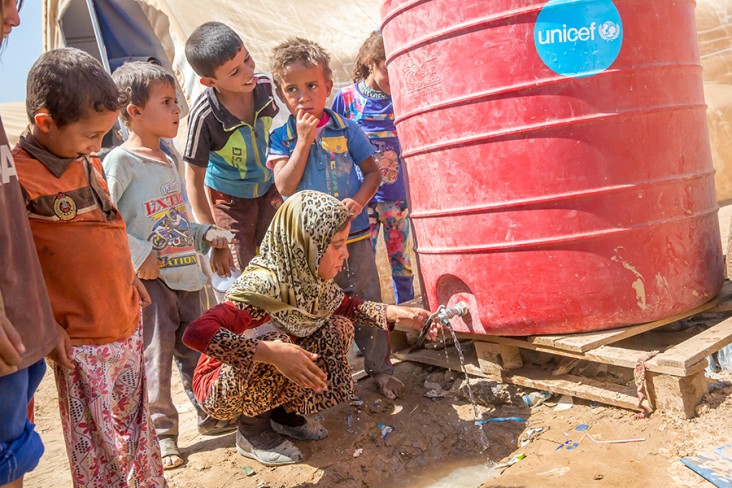
Latest Iraq Fact Sheet
Iraq Complex Emergency Fact Sheet #7 - 09-20-2017 ![]() (pdf - 401k)
(pdf - 401k)
Iraq Map - 09-20-2017 ![]() (pdf - 859k)
(pdf - 859k)
view text version [pdf, 401kb]
Key Developments
On August 31, Iraqi Prime Minister Haider al-Abadi announced that the Government of Iraq (GoI) had regained control of Ninewa Governorate’s Tal Afar District from the Islamic State of Iraq and Syria (ISIS), which had captured the district in June 2014. GoI-led military ground operations to retake Tal Afar had commenced on August 20, while airstrikes had commenced in the days prior, according to international media.
Approximately 36,700 people fled Tal Afar between July 9 and September 19, according to U.S. government (USG) partner the International Organization for Migration (IOM). Relief actors report that the majority of the population had fled prior to the offensive, and some internally displaced persons (IDPs) had commenced returning to their areas of origin in the district as early as late August.
Although the GoI announced the recapture of Ninewa’s city of Mosul from ISIS on July 10, population movements remain fluid. The GoI-led military operations had resulted in the displacement of more than 1.1 million people since October 2016, IOM reports. As of September 19, approximately 823,500 people remained displaced, while approximately 272,100 individuals had returned to areas of origin, according to IOM.
On September 20, the USG announced nearly $264 million in additional funding to address the needs of conflict-affected Iraqis, bringing total USG humanitarian assistance for the Iraq complex emergency to nearly $1.7 billion since 2014. The new funding comprises approximately $150.4 million from USAID’s Office of U.S. Foreign Disaster Assistance to support critical humanitarian interventions, such as health care, relief item distributions, and shelter assistance, and nearly $113.5 million from U.S. Department of State’s Bureau of Population, Refugees, and Migration to provide camp coordination and camp management, education, livelihoods, protection, and shelter and other relief commodities for IDPs in Iraq, as well as Iraqi refugees in the region.
HUMANITARIAN FUNDING FOR THE IRAQ RESPONSE IN FY 2017*
|
USAID/OFDA |
$292,868,666 |
|
USAID/FFP |
$68,400,000 |
|
State/PRM |
$220,118,976 |
|
Total USAID and State Assistance to the Iraq Humanitarian Response in FY 2017 |
$581,387,642 |
*These figures are current as of September 20, 2017
Background
The situation within Iraq remained relatively stable until January 2014, when Islamic State of Iraq and Syria (ISIS) forces began seizing control of parts of northern and central Iraq. Significant population displacement ensued as civilians fled to areas of relative safety, such as the Iraqi Kurdistan Region, to escape fighting. The ongoing conflict has displaced nearly 3.4 million people within Iraq since early 2014, according to the International Organization for Migration (IOM).
In 2017, the UN estimates that 11 million people in Iraq require humanitarian assistance. Prolonged displacement is exhausting the resources of internally displaced persons (IDPs) and host community members alike at a time when serious budgetary shortfalls due to low global oil prices are limiting the capacity of both the Government of Iraq and Kurdistan Regional Government to respond to humanitarian needs. Meanwhile, UN agencies, non-governmental organizations, and other relief actors face funding shortages, logistical challenges, and security constraints that complicate efforts to meet critical needs.
On August 11, 2014, USAID deployed a Disaster Assistance Response Team (DART) to help coordinate USG efforts to address the urgent humanitarian needs of newly displaced populations throughout Iraq. DART and U.S. Department of State Bureau of Population, Refugees, and Migration (State/PRM) staff in Iraq work closely with local officials, the international community, and humanitarian actors to identify critical needs and expedite assistance to affected populations. To support the DART, USAID also established a Response Management Team (RMT) based in Washington, D.C.
On October 10, 2016, U.S. Ambassador to Iraq Douglas A. Silliman re-declared a disaster in Iraq for Fiscal Year 2017 due to the ongoing complex emergency and humanitarian crisis.







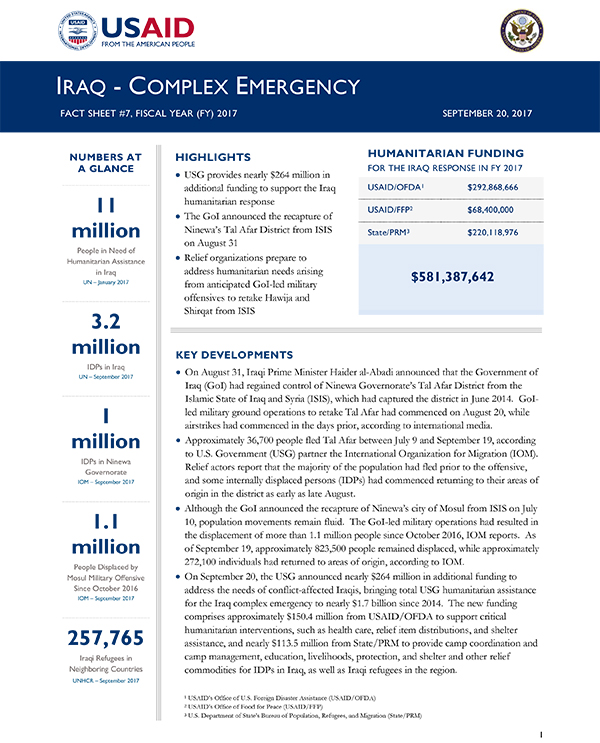
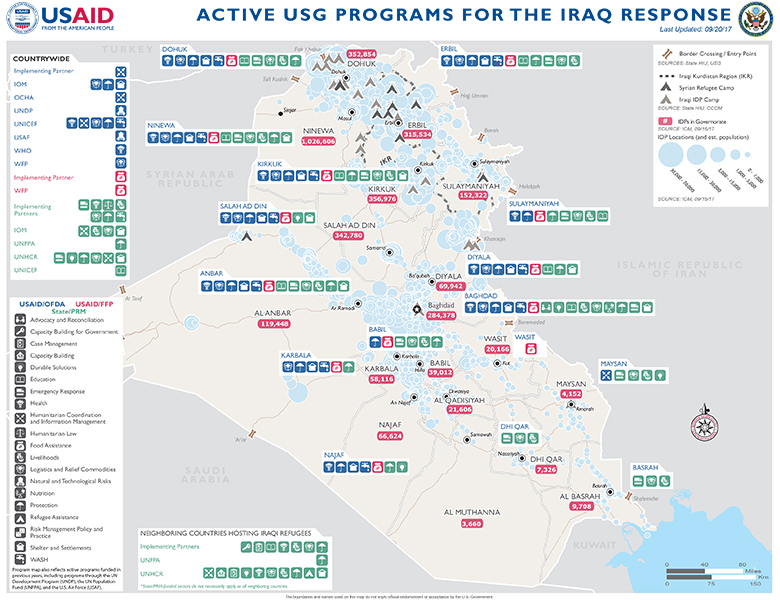
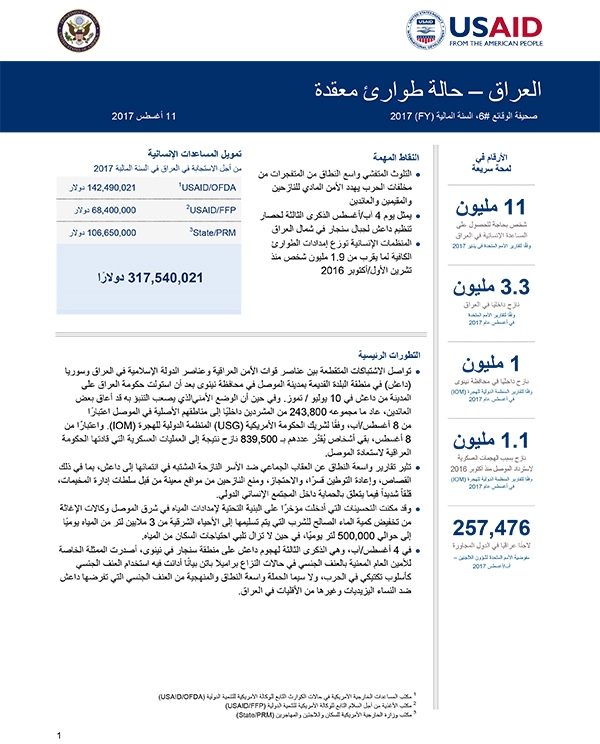
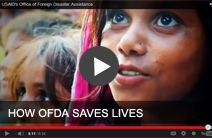
Comment
Make a general inquiry or suggest an improvement.